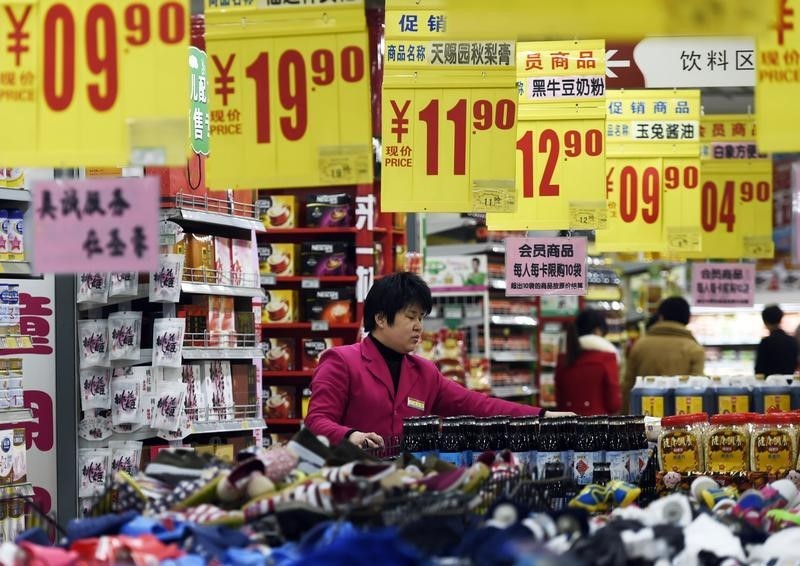By Gina Lee
Investing.com – Chinese inflation rose in October, with factory gate prices rising at their fastest pace in 26 years.
National Bureau of Statistics (NBS) data released earlier in the day showed that the producer price index (PPI) grew 13.5% year-on-year. Forecasts prepared by Investing.com predicted a 12.4% growth and a 10.7% growth was recorded in the previous month.
The jump in PPI growth was due to imported inflation and tight domestic supply of major energy and raw materials, NBS senior statistician Dong Lijuan said in a statement accompanying the data release.
The NBS data also showed that the consumer price index (CPI) grew 0.7% month-on-month. Investing.com forecasts predicted a 0.7% growth, while a 0.1% growth was recorded in the previous month.
The CPI grew 1.5% year-on-year in October, with Investing.com forecasts predicting a 1.4% growth and a 0.7% growth recorded in the previous month. This pickup was due to factors such as weather conditions, tight supply of some goods, and rising costs, the NBS statement said.
The higher CPI also suggests that the inflation pass-through from producers to consumers has on the whole been subdued. However, there are signs that cost pressures are increasingly impacting households.
The data “implies broad-based inflation pressure on both the production side and the consumer side,” China Renaissance Securities Hong Kong Ltd. head of macro and strategy research Bruce Pang told Bloomberg.
“Inflationary pressure and the more hawkish stance of monetary policy in other major economies will likely limit China’s room to maneuver for monetary easing.”
The data comes as China’s economic recovery from COVID-19 shows signs of slowing down, with the GDP widely expected to slow further in the fourth quarter from the one-year low of 4.9% reported in the third quarter.
“The acceleration in China’s inflation in October is probably a bit of a sideshow for the People’s Bank of China (PBOC), we don’t expect PBOC to take its eye off the need to cushion a slowdown in the economy. We still expect that it will cut banks’ required reserve ratio by another 50 basis points in the next month or so,” said Bloomberg China economist David Qu.
